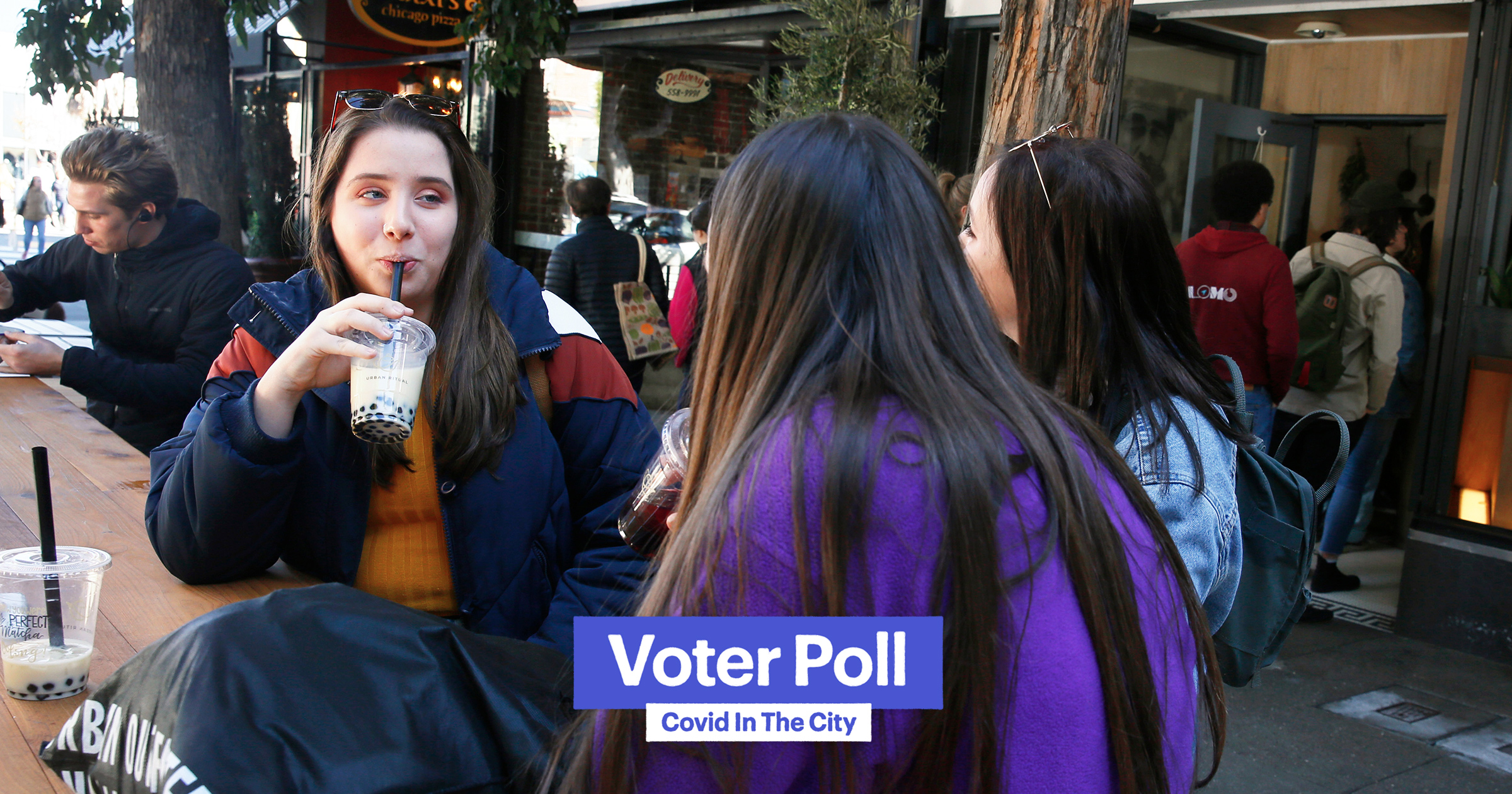A majority of San Francisco voters say they are returning to their life prior to the pandemic; however, a sizable portion continues to limit activities to avoid infection, according to the inaugural San Francisco Standard Voter Poll.
More than one-fifth (21%) of San Francisco voters said they are “not at all concerned” about the pandemic, reporting they are back to life as if Covid never happened. The largest cohort—40% of respondents—said they are “a bit concerned” about the pandemic and are “cautiously resuming” their pre-pandemic life.
The second-largest group of respondents (31%) said they are “still concerned” about the pandemic, meaning they are taking many precautionary measures to avoid infection. The smallest cohort (7%) said they are “very concerned” about the pandemic and continue to be taking all precautions as a result.
The San Francisco Standard Voter Poll was conducted in partnership with Embold Research and surveyed 1,048 registered voters about their opinions on the city, its government and its challenges. More information on the research methodology can be found here.
The new data emerges as Covid cases and hospitalizations have started to rise again locally and the federal government warns of a potential wave in the fall and winter that could infect 100 million Americans.
Opinions are mixed about when—or even if—San Francisco will return to its pre-pandemic self. A majority (54%) of respondents said full recovery will take at least a few years, with 17% reporting they believe it may never happen. Those taking a more optimistic stance include the 40% of San Francisco voters who believe the city will return to its pre-pandemic state sometime in the next year, and the 7% of respondents who said the city is already back to normal.
“We're so behind every other major city. I've been in LA, SD, NYC, Orlando, Bangkok, Geneva, Cartagena, etc. in the last year, and SF feels the most lifeless in comparison. FiDi, SoMa and downtown are just dead,” said poll respondent Hinh Tran, a Hayes Valley resident.
Mayor London Breed and other city leaders have made bringing workers back downtown a key part of their plan for San Francisco’s economic recovery. But what’s clear from the poll is that if voters have their way, hybrid work would be here to stay: Among San Francisco voters who are currently working, 31% said they are always in person, 40% said they are working a hybrid schedule, and 22% said they are always remote.
When asked for their preference for the future, 28% of working voters said they want to be always in person. That compares to 61% who said they prefer a mix of in-person and remote work, and only 15% who are looking for a totally remote structure.
The split is even starker among tech workers. Only 9% said they prefer to be only in person, with 65% seeking a hybrid structure and 28% desiring a fully remote schedule.
Nearly half of women (48%) said they are either still or very concerned about the pandemic, compared to less than a third of men (29%). Owing to the greater risk of the serious illness to the elderly, a majority of those who are 65 years and older (57%) said they are either very or still concerned about the pandemic, compared to only 22% of those in the 18 to 34 age group.
Reflecting a pattern seen in previous research, political affiliation also impacts how San Francisco voters view the risk of the pandemic. A majority of San Francisco Republicans (56%) said they are not at all concerned about the pandemic and have returned to pre-Covid life. For Democrats, that number was only 13%.
San Francisco was a national leader in imposing a shelter-in-place order to stem the spread of the coronavirus, and adopted a number of preventive measures including imposing a universal masking order, mandating vaccines for city employees and requiring proof of vaccination at restaurants and other businesses. A majority of San Francisco voters (53%) also said they are in favor of continuing to require face masks on public transportation until the outbreaks subside.
Around 84% of San Francisco residents have completed their first series of Covid vaccinations, compared to 67% of Americans and 72% of Californians.
San Francisco’s health officials say those initiatives have worked to limit the spread of the virus and the city’s share of serious illness and deaths. San Francisco’s Covid death rate per 100,000 stands at 97.2. That compares to 302.77 for the country as a whole.
